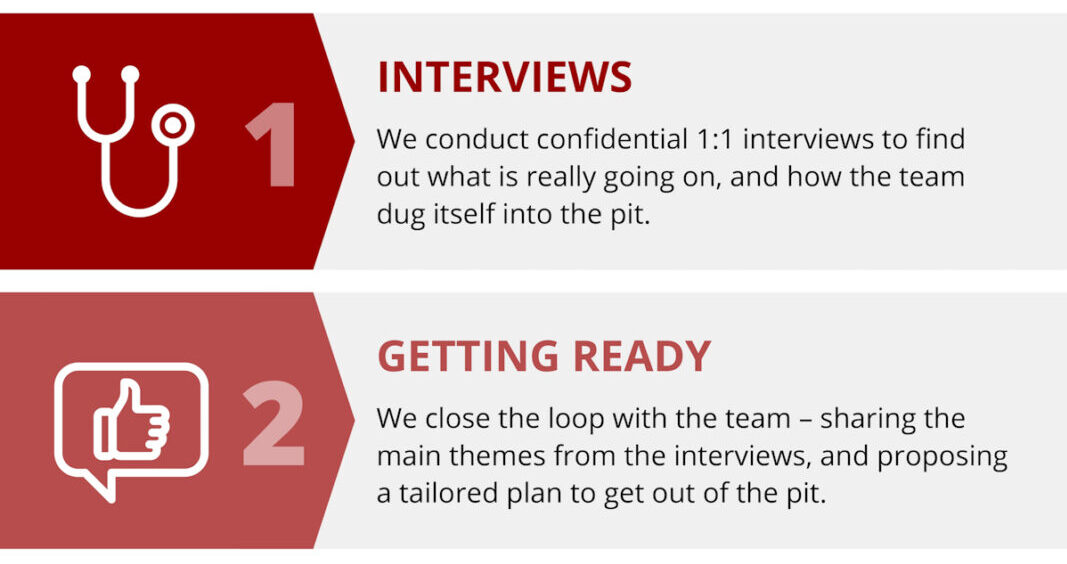How do you transform the dynamics of a team (leadership or otherwise) from dysfunctional to…
Teamwork: Google’s data shows that sensitive beats smart

Google’s quest to crack the team excellence code brings the author back to his childhood – when his parents insisted on two simple rules for discussions around the dinner table. It turns out these rules are the keys to team success!
Article first written for the People + Strategy blog of HRPS (USA).
Share the talk-time and be sensitive
When I was a kid, my parents had simple rules to keep our family of five in harmony around the dinner table. Top among them: we had to share the talk-time equally; and we had to be sensitive to each other’s feelings. Of course, we were not always following these rules. But the simple fact we had them gave us a license to point out when a sibling was transgressing a norm.
When I started leading teams, I naturally followed in the footsteps of my parents: proposing, getting agreement for, demonstrating and enforcing a few “cardinal rules” to help the group function well. However, I thought that the two rules my parents used were a little too “kindergarten-like” for business teams. So I used instead the following self-reinforcing norms, which tended to yield the same outcomes that my parents had actively promoted at the dinner table:
- Be fair and respectful;
- Remember: we need everyone;
- Speak your mind;
- Push back without hesitation.
Instinctively, I felt these rules were important to create the kind of team culture that leads to performance and success. This belief was reinforced over the years through all my experiences working with teams – as a leader, team member or observer. As a result, I always include a discussion about the importance of establishing operating norms when speaking to audiences about building strong team dynamics.
The keys to team excellence
However, I never fully realized how critical these rules were until I came across a recent article by Charles Duhigg in The New York Times (Duhigg is the journal’s Pulitzer Prize-winning reporter who penned the bestselling book ‘‘The Power of Habit’’; the article is based on his new book: “Smarter Faster Better”).
Duhigg describes ‘Project Aristotle’, the extensive research that Google conducted on its quest to crack the team excellence code – studying 180 teams all over the company since 2012. The tech giant found that the most critical ingredients were… the exact same attitudes that my parents promoted at dinner time! The two rules on which my parents insisted might sound kindergarten-like, but they are nevertheless key to building highly-performing teams.
Overview of Google’s research and findings
If you don’t have time to read Duhigg’s full article, here is an overview of how Google’s research unfolded and what exactly came out of its significant data analysis:
- First, Google found that team composition was not that relevant. As one of the researchers put it: “The ‘who’ part of the equation didn’t seem to matter”. In other words, having smart people on the team doesn’t necessarily equate to success.
- Therefore, the researchers started to look more closely at ‘group norms’ – which psychologists and sociologists define as “the traditions, behavioral standards and unwritten rules that govern how we function when we gather”.
- The data pointed strongly to the importance of group norms. However, it also painted a very fuzzy, even conflicting picture about the norms that successful teams shared. The Google researchers were confused.
- A group of psychologists from Carnegie Mellon, M.I.T. and Union College provided the key insights that helped Google make sense of its data. Like Google, these researchers found that norms were key but that very different norms could lead to team excellence.
- However, the group discovered that all the successful teams they studied had two key ingredients in common – regardless of the degree of intelligence or the success track record of their individual team members.
- The two common factors were: ‘conversation turn-taking’ (i.e. sharing the talk-time equally); and higher than average ‘social sensitivity’ (i.e. being sensitive to each other’s feelings).
- Working in tandem, these two factors created “Psychological Safety” – a term coined by Harvard Business School professor Amy Edmondson.
- Armed with these new insights, the Google researchers reanalyzed the data. It confirmed that psychological safety and team excellence had the stronger correlation.
- Successful teams might be using different group norms. But they are using norms that result in conversation turn-taking and higher than average social sensitivity – and therefore psychological safety.
Leveraging Google research for strategic advantage
Near the end of the article, Duhigg notes that “the paradox, of course, is that Google’s intense data collection and number crunching have led it to the same conclusions that good managers have always known. In the best teams, members listen to one another and show sensitivity to feelings and needs.”
But he continues by quoting one of the Google researcher: ‘‘Just having data that proves to people that these things are worth paying attention to sometimes is the most important step in getting them to actually pay attention”.
Thanks to Project Aristotle, Google got teams of busy software engineers to talk about team norms and about the more touchy-feely concepts of psychological safety, conversation turn-taking and social sensitivity. That is not a small feat! These conversations are the first necessary step towards team excellence.
Having high-performing teams across the organization is necessary for strategy execution. It also helps with innovation. Indeed, the two critical ingredients of team excellence – conversation turn-taking and social sensitivity – also make it easier for people with different backgrounds to work well together. In turn, this diversity of thinking often leads to innovation.
Therefore, we should leverage Google’s research as a catalyst for conversation within our respective organizations. Let’s help our teams adopt group norms that encourage the very same attitudes that my parents enforced at our dinner table – sharing the talk-time equally; and being sensitive to each other’s feelings.
P.S. I will call my parents this weekend to tell them how wise they were – and still are.
Copyright © 2016 by ORCHANGO. All rights reserved. | Photo credit: ©Flickr.com/Beatrice Murch




This Post Has 0 Comments